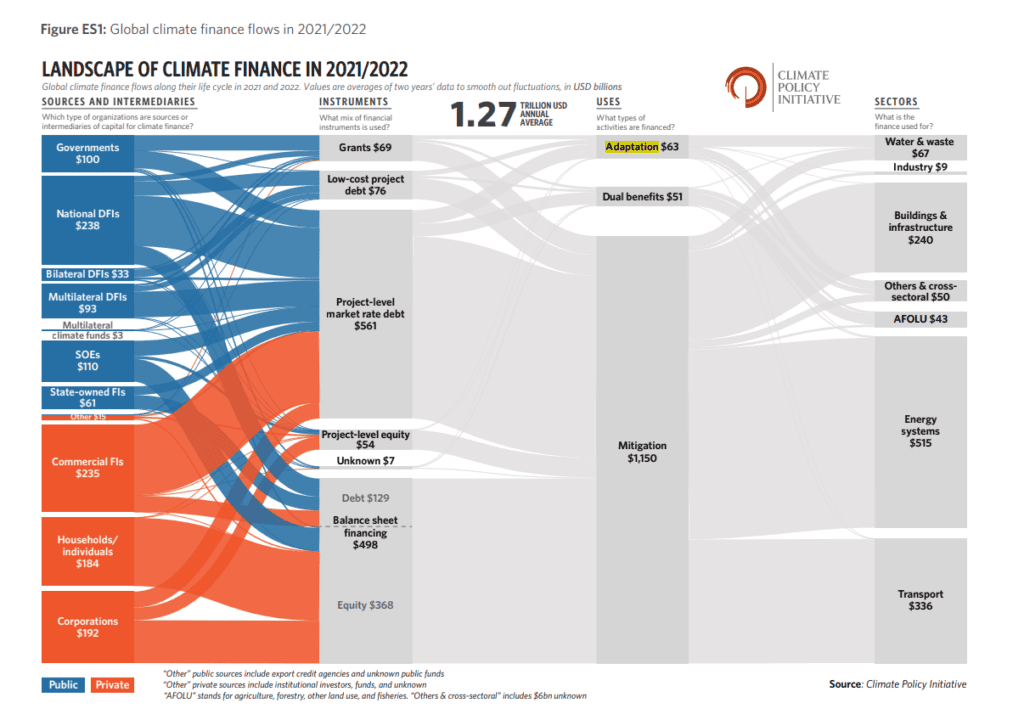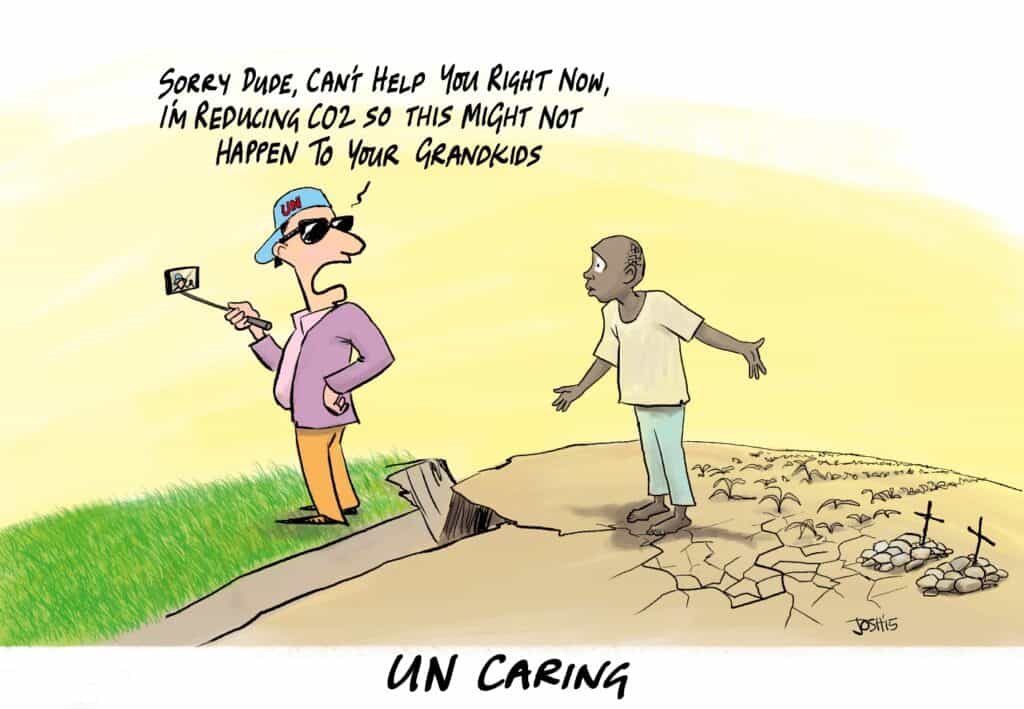Winning Leftists Over to Climate Realism

In last week’s article, “Facts Matter in the Climate Debate,” I introduced the monthly CLIMATE FACT CHECKS that we issue along with a number of allied groups. At the start of each month, ICSC uploads a link to the previous month’s version to the top of the ICSC home page. The October version is now there and links to Climate Fact Check | ICSC (icsc-climate.com). In my article, I explained how the use of these real-world facts could help neutralize annoying climate alarmist family members who would ruin our holiday dinners with irrational doom and gloom.
But facts alone are not enough to undo the years of deep conditioning that many of our left-leaning relatives and friends have been subjected to. We also need to affect them emotionally, and a tried-and-true way to do this is to show them how support of the climate scare acts against other causes they say they hold dear. That would include things like “social justice,” “diversity,” and environmental protection.
And, indeed, policies to supposedly “stop climate change,” a physical impossibility, of course, cause very serious violations in all of these other areas. Once sensible left-wingers—and yes, there are many—come to understand this, they have an incentive to more seriously consider the possibility that the facts they previously accepted as true may, in fact, be wrong.
So, let’s discuss some of the arguments we can present to progressives to encourage them to think about climate change differently.
Adaptation support lacking for vulnerable populations
In my article “Reconsidering climate change,” published in the March 2015 issue of World Commerce Review, I described how, largely because activists have convinced politicians that humans control our planet’s climate as if we had a global thermostat, only about 1/20th of the over $1 billion spent every day across the world on climate finance goes to assisting the world’s most vulnerable people adapt to the challenges they face today due to natural climate change. The remainder is dedicated to mitigation, trying to stop hypothetical human-caused climate change that might someday happen. Most of that money is dedicated to so-called renewable energy, namely wind and solar power.
Aside from the fact that the absolute amounts being spent on both adaptation and mitigation have risen dramatically since 2015 (see figure on the right), the balance between the two remains about the same (see below figure from the November 2023 report “Global Landscape of Climate Finance 2023” issued by the San Francisco-based Climate Policy Initiative), with:
- $1.15 trillion going to mitigation,
- $63 billion going to adaptation, and
- $51 billion is devoted to projects that involve both mitigation and adaptation.
So, that means that, just as in 2015, only about 5% of climate finance is being devoted solely to adaptation. In other words, we are placing far more importance on the possible impact of climate change on people yet to be born than the known effects of climate change, whether natural or caused by human actions, on people right now!
This has been going on for a long time. When I attended the UN climate conference in Copenhagen in 2009, the Africans were furious about this situation, complaining to me, “You people from the developed world concentrate mostly on trying to stop climate change that may someday happen. We need help today!”
This approach costs many lives each year in countries outside of Africa as well, such as in The Philippines, which are subject to typhoons and other severe, periodic natural disasters. To help illustrate the African’s very valid concerns, ICSC had the following editorial cartoon created on contract:
This situation is clearly immoral but is being driven in part because there are huge profits to be made in wind and solar power, while little to be gained financially by large corporations with the sorts of boots-on-the-ground approaches more typical of adaptation projects.
John Kerry was right to tell Indonesians that climate change is a serious danger to humanity if not addressed appropriately. Scientists explained to the UN Secretary-General as early as the 2009 Copenhagen Climate Challenge exactly what that appropriate approach is: “Climate policies need to focus on preparation for, and adaptation to, all dangerous climatic events however caused.” Assisting countries in adapting to present-day climate change should be a foreign aid issue driven only by humanitarian concerns and our financial capabilities. Accepting responsibility for causing what are almost certainly natural climatic events is irrational and, ultimately, hurts the world’s most vulnerable people.
The tragic consequences of the climate scare are not limited to the mitigation/adaptation funding debate. The mistaken idea that science is sufficiently advanced that we can make reliable climate forecasts and even control future climate states by restricting our carbon dioxide (CO2) emissions results in tragedies far worse than any foreseeable human-induced global warming. Here is another climate policy-driven problem that should disturb progressives concerned about social justice.
Depriving poor countries of abundant, inexpensive electricity
In his book, The Mad, Mad, Mad World of Climatism, Steve Goreham, Executive Director of the Climate Science Coalition of America, details another tragic consequence of overconfidence about climate change science. It is that developed countries are increasingly reluctant to help developing countries take advantage of their inexpensive hydrocarbon fuel resources due to climate change concerns.
Goreham gives the example of the $3.9 billion loan approved by the World Bank in 2010 for the construction of South Africa’s Medupi power station, slated to be the fourth largest coal-fired electricity generating station in the world. The U.S. member of the World Bank board abstained from approval because of his concerns about climate change. The representatives of four European nations did the same. They apparently wanted poor countries to use wind and solar power instead, sources that are too expensive for widespread use, even in wealthy nations. The loan passed only because developing country representatives on the World Bank board voted for approval.
This situation will only get worse. Goreham wrote:
“Environmental groups such as BankTrack, Friends of the Earth and Rainforest Action Network have forced most major banks to sign the ‘Equator Principles.’ The Principles demand that banks lend only in an environmentally responsible manner. This responsibility increasingly precludes lending to projects involving oil, gas, and coal fired power plants…Under tremendous pressure, Citibank, J.P. Morgan Chase, Bank of America and most other banks of the world have surrendered and signed the Equator Principles.”
Because of the politically correct but scientifically flawed hypothesis of CO2-driven climate problems, “the growth of hydrocarbon energy will be limited, and millions will continue to suffer in the developing world—a form of eco-genocide,” Goreham concludes.
Source: America Out Loud
Please Donate Below To Support Our Ongoing Work To Expose The Lies About Covid 19
PRINCIPIA SCIENTIFIC INTERNATIONAL, legally registered in the UK as a company  incorporated for charitable purposes. Head Office: 27 Old Gloucester Street, London WC1N 3AX.
incorporated for charitable purposes. Head Office: 27 Old Gloucester Street, London WC1N 3AX.
Trackback from your site.



